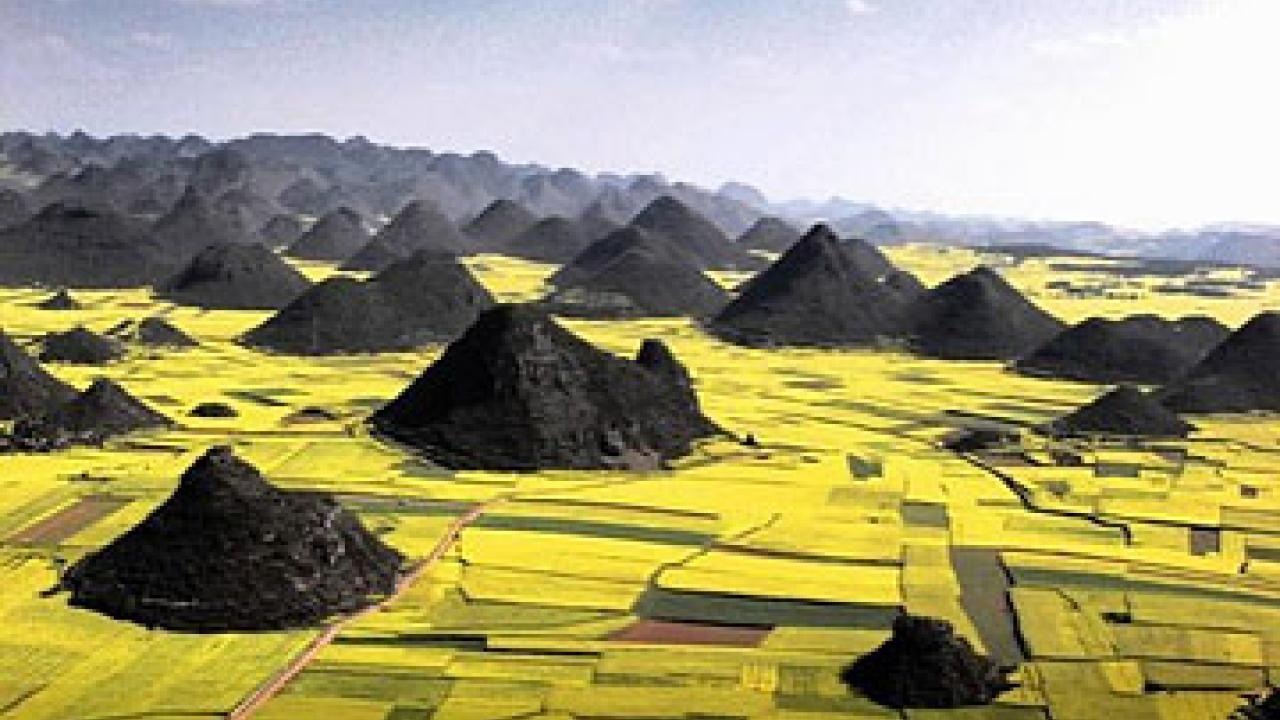Two paleontologists from UC Davis are among a group of experts advising government leaders in Luoping, China, on fossil conservation and the development of a geological park.
The Luoping area is unique in preserving fossils of marine reptiles such as ichthyosaurs and plesiosaur ancestors, together with the fish, arthropods and plants that lived with them, said Ryosuke Motani, professor of geology at UC Davis. The fossils date from the Middle Triassic period, about 240 million years ago.
Luoping is a developing tourist destination known for its mountains, surrounded in the summer by bright yellow canola fields, as well as for its rich fossil deposits. The area stands a good chance of being selected as a United Nations Educational, Scientific and Cultural Organization "geopark," Motani said.
Motani, UC Davis graduate student Neil Kelley and other international experts visited Luoping in early September. They toured the fossil site, then met with government officials to discuss the value of the fossils, ways to protect them against natural and human damage, and the chances of qualifying for UNESCO recognition.
The UNESCO Geoparks Program aims to build a network of nationally protected areas containing geological heritage sites of particular importance, rarity or aesthetic appeal. Geoparks promote conservation, education and geotourism.
Media Resources
Andy Fell, Research news (emphasis: biological and physical sciences, and engineering), 530-752-4533, ahfell@ucdavis.edu
Ryosuke Motani, Geology, (530) 754-6284, motani@geology.ucdavis.edu
